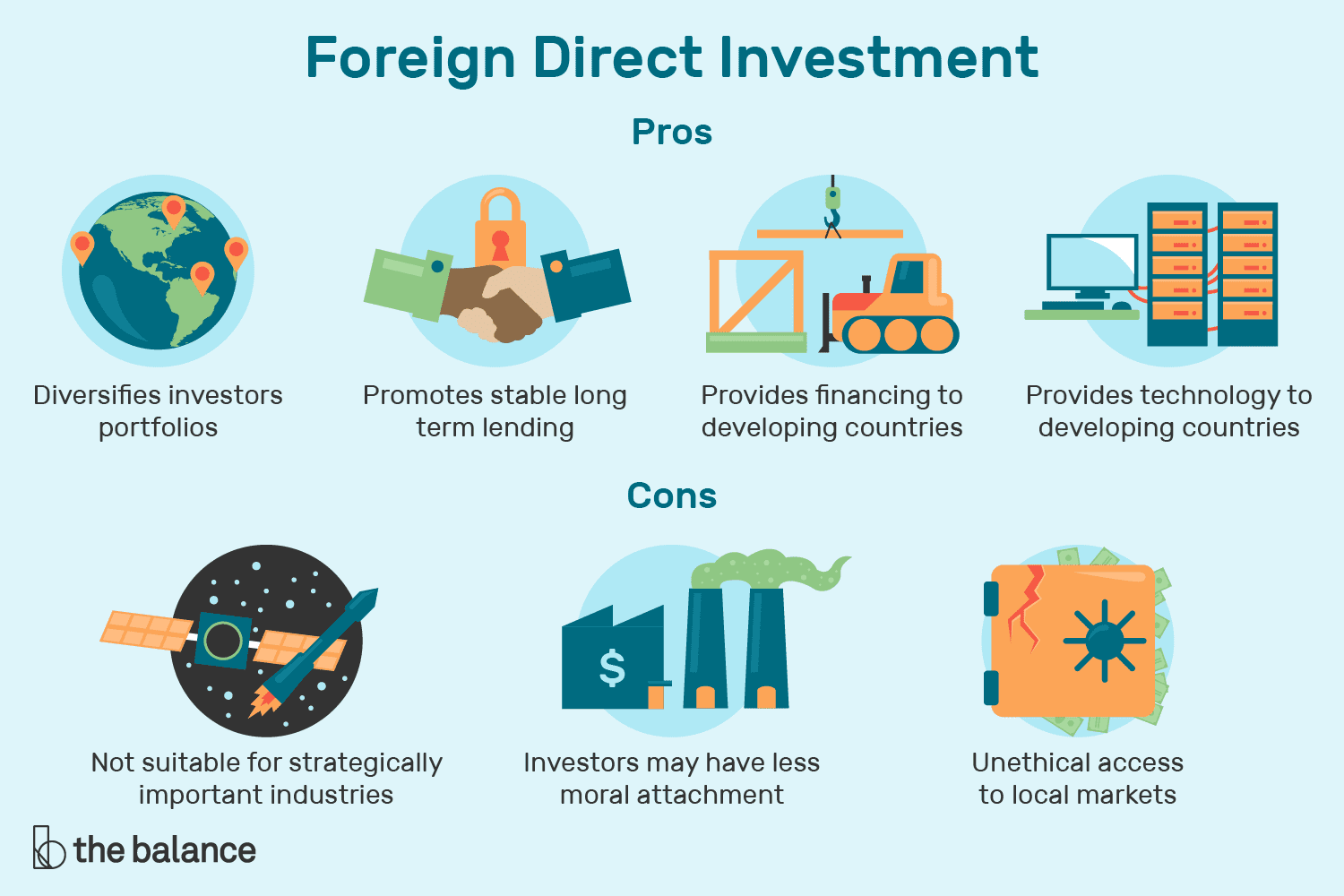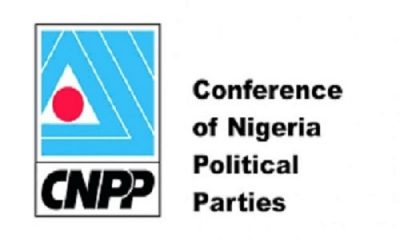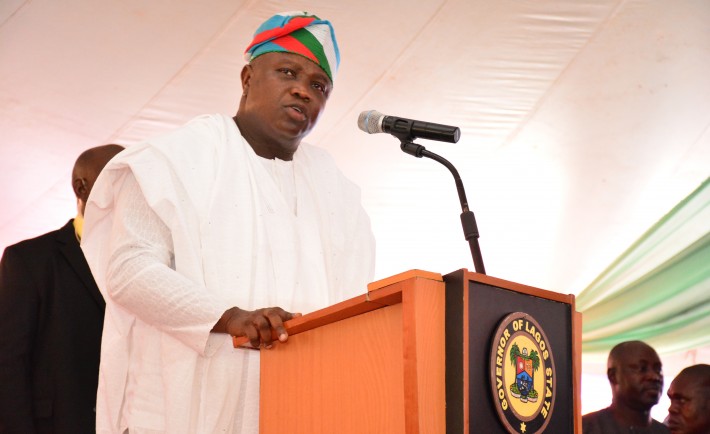Economy
Nigeria Missing in Top 10 Safest Countries for Foreign Investment List

By Dipo Olowookere
A new report which listed the Top 10 Safest Countries for Foreign Investment has excluded Nigeria despite the efforts of the administration of President Bola Tinubu to make the country the preferred place to do business.
Since assuming office on May 29, 2023, Mr Tinubu has carried out some economic reforms aimed to attract investors to Nigeria, including the liberalisation of the foreign exchange (FX) market, removal of petrol subsidy, and streamlining the tax regime, among others.
In a recent study by Atmos, top 30 countries were identified based on economic stability, investment attractiveness, and political and economic stability.
In the outcome of the research made available to Business Post on Monday, it was stated that countries were evaluated using six metrics: economic stability rank, political stability score, global peace index, investment attractiveness, foreign direct investments (FDI), and GDP per capita. These metrics were ranked, with the top country receiving a score of 100.
“When evaluating investment potential, it’s clear that economic strength alone doesn’t paint the full picture.
“Political stability and a peaceful environment are equally essential in fostering a climate that attracts long-term investment. Investors are drawn to countries where risks are minimized and confidence in future growth is high, making these factors just as critical to a nation’s financial appeal,” the chief executive of Atmos, Mr Nick Cooke, stated.
Switzerland led the ranking as the lowest risk country to invest in, with a score of 100. It featured exceptional economic fundamentals and the highest GDP per capita among the top-ranked countries at nearly $100,000. Switzerland demonstrates balance across all metrics, ranking 2nd in economic stability while maintaining excellent political stability (1.07) and peace index scores (1.33).
Singapore followed in 2nd with a score of 90.21, standing out with the highest investment attractiveness (82.4) among the top three nations and exceptional foreign direct investment inflows of over $175 million, outperforming Switzerland in this metric. The city-state’s strategic position in Southeast Asia, combined with its second-place economic stability ranking, creates a powerful investment hub. Singapore’s global peace index of 1.3 is the best among all ranked countries, reflecting its excellent security environment.
The third of the list was Canada with a score of 89.53, demonstrating exceptional investment attractiveness (86.6) and solid political stability (0.82). Canada’s balanced approach to foreign investment has resulted in substantial foreign direct investment (FDI) inflows exceeding $47 million, positioning it as a reliable North American investment alternative. The country maintains strong economic fundamentals, offering a reasonable GDP per capita of $53,431.
Japan ranked 4th with a score of 88.77, featuring the highest investment attractiveness score (86.8) among all countries in the index. The Asian country has an excellent political stability (0.951) and a strong peace index rating (1.33), creating a secure environment for foreign capital. Despite having a lower GDP per capita than other top-five nations at $33,766, Japan’s economic resilience and technological innovation continue to attract nearly $20 million in foreign investments.
The 5th place was occupied by Germany with a score of 86.32. As Europe’s largest economy, Germany maintains excellent economic stability (ranked 3rd), following Switzerland and Singapore, and a strong investment attractiveness (84.6). With GDP per capita exceeding $54K and foreign direct investments approaching $20 million, Germany represents the centerpiece of European investment security.
Denmark is the 6th-lowest risk country to invest in, with a score of 84.38, featuring an impressive GDP per capita of $68,453 and excellent political stability (0.85). Denmark’s peace index of 1.3 places it among the safest nations globally, though its relatively modest FDI figures of $4.5 million reflect its smaller market size. The Nordic nations’ consistent economic policies and transparent business environment remain key strengths for investors seeking stability.
In the 7th, Australia scored 84.08, balancing strong political stability (0.921) with excellent investment attractiveness (81.9). Australia has attracted substantial foreign direct investments exceeding $32.5 million, second only to Singapore among the top ten countries. Australia has attracted $32.5 million in foreign investments, substantially higher than Denmark and second only to Singapore. It also offers a GDP per capita of $64,820 with a relatively stronger peace index (1.525) compared to several preceding countries.
Norway was in 8th with a score of 82.44. With the second-highest GDP per capita at $87,925, Norway only trails Switzerland in this metric. It maintains solid political stability (0.89) and investment attractiveness (78.8), though its economic stability rank (11th) is the lowest among the top ten countries. The Nordic nation has attracted over $10.7 million in foreign investments despite its relatively small market size.
The United Arab Emirates took the 9th position with a score of 80.71, claiming the top position in economic stability among all countries in the index. The UAE combines this economic strength with moderate political stability (0.681) and substantial foreign investments exceeding $22.3 million. At the same time, its relatively weaker peace index score (1.979) and lower investment attractiveness (59.6) compared to other top nations prevent a higher overall ranking.
The 10th spot was grabbed by New Zealand with a score of 76.96, featuring excellent peace index ratings (1.31) but faces challenges with its economic stability ranking (18th) and modest foreign investment inflows of $3.59 million. The country’s investment attractiveness score of 63.0 is significantly lower than that of other top-ranked nations, reflecting its geographical isolation and smaller market size.
Economy
Seven Price Gainers Boost NASD OTC Bourse by 2.19%

By Adedapo Adesanya
Seven price gainers flipped recent declines at the NASD Over-the-Counter (OTC) Securities Exchange, raising the alternative stock market by 2.19 per cent on Friday.
According to data, the market capitalisation added N51.24 billion to end N2.389 trillion compared with the previous day’s N2.338 trillion, while the NASD Unlisted Security Index (NSI) climbed 85.65 points to close at 3,994.32 points, in contrast to the 3,908.67 points it ended a day earlier.
Business Post reports that the advancers were led by MRS Oil Plc, which improved its value by N13.00 to N200.00 per share from N187.00 per share, FrieslandCampina Wamco Nigeria Plc gained N7.40 to settle at N91.55 per unit versus the previous day’s N84.15 per unit, Central Securities Clearing System (CSCS) Plc appreciated by N6.08 to N71.00 per share from N64.92 per share, Afriland Properties Plc added 66 Kobo to finish at N17.17 per unit versus N16.51 per unit, IPWA Plc rose 37 Kobo to N4.15 per share from N3.78 per share, First Trust Mortgage Bank Plc grew by 11 Kobo to N1.20 per unit from N1.09 per unit, and Food Concepts Plc went up by 10obo to N3.70 per share from N3.60 per share.
On the flip side, there were two price losers led by Geo-Fluids Plc, which depreciated by 28 Kobo to N3.32 per unit from N3.60 per unit, and Industrial and General Insurance (IGI) Plc dropped 5 Kobo to sell at 45 Kobo per share from 50 Kobo per share.
Yesterday, the volume of trades went down by 92.0 per cent to 3.7 million units from 45.8 million units, the value of transactions fell by 59.4 per cent to N84.5 million from N208.2 million, while the number of deals went up by 7.7 per cent to 42 deals from 39 deals.
CSCS Plc remained the most traded stock by value (year-to-date) with 32.6 million units exchanged for N1.9 billion, trailed by Geo-Fluids Plc with 119.6 million units valued at N470.3 million, and Resourcery Plc with 1.05 billion units traded at N408.6 million.
Resourcery Plc closed the day as the most traded stock by volume (year-to-date) with 1.05 billion units sold for N408.7 million, followed by Geo-Fluids Plc with 119.6 million units worth N470.3 million, and CSCS Plc with 32.6 million units worth N1.9 billion.
Economy
FX Demand Worries Weaken Naira to N1,346/$1 at Official Market

By Adedapo Adesanya
The Naira weakened further against the United States Dollar in the Nigerian Autonomous Foreign Exchange Market (NAFEX) on Friday, February 20, by N4.97 or 0.37 per cent to N1,346.32/$1 from the N1,341.35/$1 it was transacted on Thursday.
Heightened FX demand tilted the market toward the downside yesterday, exerting upward pressure on rates despite efforts by the Central Bank of Nigeria (CBN) to stabilise the foreign exchange market.
Also in the official market, the domestic currency depreciated against the Pound Sterling during the session by N9.39 to sell for N1,815.25/£1 versus the previous day’s N1,805.86/£1, and lost N7.33 against the Euro to close at N1,584.62/€1 compared with the preceding session’s N1,577.29/€1.
The story was not different for the Nigerian Naira at the GTBank FX desk, where it depleted against the Dollar by N7 on Friday to quote at N1,356/$1 versus the N1,349/$1 it was sold a day earlier, but remained unchanged in the black market at N1,370/$1.
It was observed that risky sentiment among Foreign Portfolio Investors (FPIs) contributed to the FX market, amid fears of hot money flight due to capital gains tax and other factors.
As for the cryptocurrency market, it was mostly green yesterday in reaction to a Supreme Court verdict dismissing a fresh 10 per cent global levy by President Donald Trump.
The apex court on Friday described Mr Trump’s global tariff rollout as illegal. The decision did not clarify what should happen to tariff revenue already collected, and it doesn’t necessarily spell the end of the trade agenda, with multiple legal and executive avenues still available.
Litecoin (LTC) grew 2.7 per cent to $55.00, Cardano (ADA) appreciated 2.6 per cent to trade at $0.2815, Binance Coin (BNB) expanded by 2.6 per cent to $627.19, Dogecoin (DOGE) recouped 1.3 per cent to quote at $0.1, Ripple (XRP) jumped 0.7 per cent to $1.43, Solana (SOL) improved by 0.5 per cent to $84.15, and Ethereum (ETH) soared 0.1 per cent to $1,962.78.
However, Bitcoin (BTC) lost 0.2 per cent to sell for $67,850.49, while the US Dollar Tether (USDT) and the US Dollar Coin (USDC) traded flat at $1.00 each.
Economy
Fidson, Jaiz Bank, Others Keep NGX in Green Territory

By Dipo Olowookere
A further 0.99 per cent was gained by the Nigerian Exchange (NGX) Limited on Friday after a positive market breadth index supported by 53 price gainers, which outweighed 23 price losers, representing bullish investor sentiment.
During the trading day, the trio of Jaiz Bank, Fidson, and NPF Microfinance Bank chalked up 10.00 per cent each to sell for N11.00, N86.90, and N6.27, respectively, while Deap Capital appreciated by 9.96 per cent to N7.62, and Mutual Benefits increased by 9.94 per cent to N5.42.
Conversely, Secure Electronic Technology shed 10.00 per cent to trade at N1.62, Sovereign Trust Insurance slipped by 9.73 per cent to N2.32, Ellah Lakes declined by 7.91 per cent to N12.80, International Energy Insurance retreated by 5.56 per cent to N3.40, and ABC Transport moderated by 5.26 per cent to N9.00.
Data from Customs Street revealed that the insurance counter was up by 2.52 per cent, the industrial goods sector grew by 2.28 per cent, the banking space expanded by 1.43 per cent, the consumer goods index gained 1.23 per cent, and the energy industry rose by 0.05 per cent.
As a result, the All-Share Index (ASI) went up by 1,916.20 points to 194,989.77 points from 193,073.57 points, and the market capitalisation moved up by N1.230 trillion to N125.164 trillion from Thursday’s N123.934 trillion.
Yesterday, investors traded 820.5 million stocks valued at N28.3 billion in 63,507 deals compared with the 898.5 million stocks worth N38.5 billion executed in 61,953 deals, showing a jump in the number of deals by 2.51 per cent, and a shortfall in the trading volume and value by 8.68 per cent and 26.49 per cent apiece.
Closing the session as the most active equity was Mutual Benefits with 79.0 million units worth N427.1 million, Zenith Bank traded 44.0 million units valued at N3.8 billion, Chams exchanged 43.9 million units for N182.0 million, AIICO Insurance transacted 42.4 million units valued at N179.8 million, and Veritas Kapital sold 36.0 million units worth N90.6 million.
-

 Feature/OPED6 years ago
Feature/OPED6 years agoDavos was Different this year
-
Travel/Tourism10 years ago
Lagos Seals Western Lodge Hotel In Ikorodu
-

 Showbiz3 years ago
Showbiz3 years agoEstranged Lover Releases Videos of Empress Njamah Bathing
-

 Banking8 years ago
Banking8 years agoSort Codes of GTBank Branches in Nigeria
-

 Economy3 years ago
Economy3 years agoSubsidy Removal: CNG at N130 Per Litre Cheaper Than Petrol—IPMAN
-

 Banking3 years ago
Banking3 years agoSort Codes of UBA Branches in Nigeria
-

 Banking3 years ago
Banking3 years agoFirst Bank Announces Planned Downtime
-

 Sports3 years ago
Sports3 years agoHighest Paid Nigerian Footballer – How Much Do Nigerian Footballers Earn















Pingback: The New Rules of Diversification: Nigerian Portfolios Going Global with | Business Post Nigeria